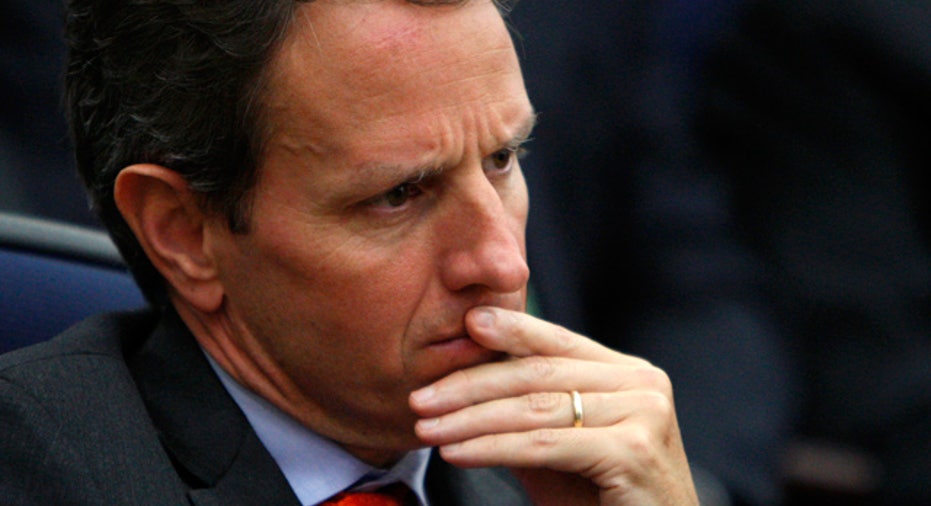Geithner Reaches Out to Brazil on China Issue

U.S. Treasury Secretary Timothy Geithner reached out to Brazil Monday by citing a shared concern -- China -- and endorsing Brazil's approach for dealing with global economic distortions.
While on a one-day visit to Brazil, Geithner told an audience in Sao Paulo that emerging markets such as Brazil had been buffeted in recent years by other countries with large current account surpluses and inflexible currencies.
Geithner did not mention China by name. Yet his comments will likely be well-received by the Brazilian government, which is seeking closer ties with Washington in part out of hope that the two countries can work together to convince China to let its currency appreciate faster.
"As countries with large surpluses act to strengthen domestic demand in their economies, open their capital markets and allow their currencies to reflect fundamentals, we will see more balance in the flow of capital, less upward pressure on Brazil's currency, and more robust growth in Brazil's exports, especially manufacturing exports," Geithner said at a think-tank in Sao Paulo.
After strains in recent years over trade disputes and Brazil's cozy relationship with Iran, new President Dilma Rousseff has openly sought closer ties with the United States since she took office on Jan. 1.
The undervalued Chinese yuan -- part of what Brazil has called a global currency war -- has posed a major problem for Brazil's otherwise prosperous economy by fast eroding its trade balance and transferring jobs abroad.
Geithner also added that countries such as Brazil that face an "outsized burden" due to their strong currencies "may need to adopt carefully designed macro-prudential measures" -- a tacit endorsement of capital controls that Brazil has recently implemented to ease strong inflows.
Geithner's comments came three days after the Treasury released a long-delayed report that declined to name China as a currency manipulator, but said the yuan was "substantially undervalued."
Geithner's visit is also designed to lay the groundwork for a trip by U.S. President Barack Obama in March, which officials on both sides say will signal a better era of cooperation between the Western Hemisphere's two biggest economies.
Rousseff, a pragmatic leftist, believes that closing ranks with Washington is one of the only avenues available to convince China to correct trade imbalances, advisers say.
"The United States is thrilled with the language the Brazilian government has been using in regards to global economic issues, in particular, regarding China," said Mauricio Cardenas, director of the Latin America studies program at the Brookings Institution, a Washington think tank.
COMMODITIES MARKETS
Rousseff also wants to work with Washington against France's proposal to tighten international commodity market regulations, a move it argues benefits only wealthy food importers and could stifle output by major food producers.
Lael Brainard, a U.S. Treasury undersecretary who is accompanying Geithner on the trip, said Brazil and the United States share common ground on the G20 commodities agenda and want to keep the focus on improving market functioning.
"The approach that we'll want to take there is to improve transparency in the commodity markets," she said. "But it's with a view to making markets function more effectively as opposed to supplanting markets."
Rousseff is also reevaluating a large jet fighter deal, which France's Dassault was widely thought to have won, thus reconsidering bids by U.S.-based Boeing and Sweden's Saab .
Geithner, who will meet with Brazilian Finance Minister Guido Mantega and central bank chief Alexandre Tombini, will also aim to discuss shared bilateral goals such as how best to rein in government spending and rebalance global growth.



















